Devorah Fox's Blog, page 22
November 1, 2015
The Inner Life of Science Fiction

FantasyCon is being attended by writers, readers, artists, bloggers, and publishers. Today I’m delighted to have a guest post from Alesha Escobar, author of the Gray Tower Trilogy of novels and several short stories. Welcome, Alesha.
There’s a certain sense of mastery we feel when we’re able to exert our power over nature through technology. The universe is not man-made, but technology certainly is. What drew me to science fiction, whether it was a film or book, was the idea that future technological advancements presented were just believable enough to be possible, though they had no place in our world today.
What also grabbed my attention was the range of stories–from flying among the stars to discovering intelligent alien life. The possibilities seem endless regarding the types of characters and situations we could explore in a science fiction story.
However, until recently, it didn’t occur to me that most of all, science fiction is really about ourselves. Yes, we are drawn to the scenery and technology, but even more fascinating is how we interact with the scenery and what we do with the technology.
In my recent contribution to the Masters of Time anthology, I set my story in a future where time travel was possible. And while the question of time travel (as well as its consequences) were interesting, what became central to the story was how my protagonist used this as a catalyst to assert his independence and vindicate his humanity.
A story can have the sleekest starships and the most exotic alien life, but if there aren’t characters there to wrestle with deeper questions and issues, then it all becomes window dressing. This is why I enjoy great science fiction stories. They will make you both think and feel, especially as you turn your gaze toward the possibilities that await us in this vast universe.
About Alesha
Alesha Escobar writes fantasy to support her chocolate habit. When she’s not chasing around her children, she enjoys reading, cooking, movies and crafts. The first book of the Gray Tower Trilogy, The Tower’s Alchemist, is currently free in the Kindle store. Alesha also has a short story, The Black Dagger Gods, published in the New Myths anthology by HDWP Books. Her most recent work, Logan 6, can be found in the Masters of Time anthology by Creative Alchemy, Inc.
Blog: http://www.aleshaescobar.com
Facebook: http://www.facebook.com/AuthorAleshaE...
October 30, 2015
It’s just FANTASTIC
 Hark and take heed! A time of fantasy and wonder is upon the virtual land!
Hark and take heed! A time of fantasy and wonder is upon the virtual land!In the past few weeks I’ve been immersed in an interesting new phenomenon. A group called Flavor of Fantasy along with a bunch of authors, publishers, bloggers and artists is putting together a gigantic online fantasy and sci fi event from Nov. 1 to Nov. 8 for everyone who loves these genres.
It’s aimed at creating fantastic fun, as well as helping people find new fantasy and sci fi to read and letting readers meet real authors and ask live questions. There will be games like a daily scavenger hunt where you have to find clues in fantasy books and a costume contest. There will apparently be A TON of prizes of Amazon gift certificates, books and ebooks. They are planning chats with all kinds of different authors and some videos of panel discussions on a bunch of really intriguing topics, like the one I’ll be on, “The Hero’s Journey.”
It’s the kind of thing that a real fantasy nerd could waste way too much time on for a week in November. It might just suck us all in and make us lose track of reality for awhile. But that can be a good thing in a month like November. And even if you just want to poke around at parts of it, you can find some great reading and have a fantasy experience.
Anyway, I’ll be there because I got roped into being one of the authors to present books. So, I hope to see you there: https://www.facebook.com/events/1042477232432225
The online event is divided up into subgenres, so there is a different place to go each day. You can choose your favorites or migrate from one to another based on the day:
Nov. 1 is Sci-Fi Sunday –https://www.facebook.com/events/1473590436304437
Nov. 2 is Paranormal Monday –https://www.facebook.com/events/417991071728629/
Nov. 3 is Dark Tuesday –https://www.facebook.com/events/723453437799607/
Nov. 4 is Epic Wednesday –https://www.facebook.com/events/893446364072813/
Nov. 5 is Fairytale Thursday –https://www.facebook.com/events/1912656672292028/
Nov. 6 is Urban Friday –https://www.facebook.com/events/938111222893884/
Nov. 7 is Steampunk Saturday –https://www.facebook.com/events/171241949877947/
Nov. 8 is YA Fantasy Sunday –https://www.facebook.com/events/1109156279118158/
I’ll be hosting a booth (a dedicated Facebook page) on Epic Wednesday. Please drop by, give it a LIKE, make a comment, post a photo. enter the giveaway, play the Scavenger Hunt. Here’s a preview of the fun we plan to have.
May the imagination run wild.
October 23, 2015
When fantasy invades your reality

FantasyCon is being attended by writers, readers, artists, bloggers, and publishers. Today we have a guest post from urban fantasy author Arie Anne Farnam. Welcome, Arie.
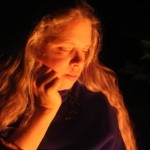 I have been set a task by with wizards of FantasyCon–a quest that appears impossible at the outset—to define “urban fantasy” and make it stand out as a genre. But as with the heroines of all good fantasy I must give it my best shot.
I have been set a task by with wizards of FantasyCon–a quest that appears impossible at the outset—to define “urban fantasy” and make it stand out as a genre. But as with the heroines of all good fantasy I must give it my best shot.
Unlike those genres that can trace their lineage to Beowolf, this is a new phenomenon, having taken root in the 1990s. Among the authors who have staked the territory most clearly are Jim Butcher (The Dresden Files), Laurell K. Hamilton (Anita Blake: Vampire Hunter), Neil Gaiman (Neverwhere), Kevin Hearne (The Iron Druid Chronicles) and J.K. Rowlings (Harry Potter). And that diversity alone ought to give you some idea of the long odds on my quest.
It is often said that urban fantasy is simply urban, that its entire claim to fame is in the fact that it is set in cities and towns. But many other fantasy stories are set in cities past and present, and that doesn’t make such stories “urban fantasy.” Most urban fantasy is based in an industrialized or post-industrial setting and as a natural consequence it is mostly urban (because so is most of the population in such societies). And yet sometimes the story is about the fact that characters are forced out of the urban world to hide in what is left of the wilderness.
So, I’ll take another tack here. Urban fantasy isn’t only about setting. It’s a contemporary and urban form of mundane fantasy. The excellent genre-definition site bestfantasybooks.com defines “mundane fantasy” by saying it will not satisfy readers who primarily want to escape from mundane reality. Instead, “if perhaps you want to find a bit of fantasy within the mundane, maybe this sub-genre will be for you.”
And that is where urban fantasy shines. Of all fantasy genres, urban fantasy is the most close to home. A good urban fantasy tale should send shivers down your spine and make you think reality might just change the next time you step outside your door. It should cause you to look at the impassive faces on the subway during your morning commute and think, “Yes, I can see where it comes from.” It should hint that something inexplicable could happen at any moment in a banal industrial cityscape. It should transform the alleyways of a small, ordinary town into a setting for the terrible and wondrous.
In short, if high fantasy let’s you escape from your life while you read, urban fantasy captures you and invades your thoughts even when you are not reading.
Most urban fantasy is set on earth in modern or nearly modern times. It often either begins with a character who believes they live in the mundane world or with a character who must hide magic from those who don’t know about it. Its setting is important because it should mirror something very real and familiar in order to draw the reader into a web of “what if” questions that render the fantasy eerily plausible.
While all children know that Harry Potter’s magic isn’t real, they love the idea that a magical world is hiding in the city streets all around them, that a secret world could be just between the railway platforms or out the back of a local bookshop. And urban fantasy isn’t just for children and young adults.
Another way that some have tried to pigeonhole urban fantasy has been to say that it is shallow and lacking in social substance. This comes from a few popular associations but often they are misleading and belong as much to other genres as they do to urban fantasy. And look again even at Harry Potter. It may be a children’s series but the social and moral commentary run deep beyond what is usually preached at children.
Urban fantasy may not be famous for attacking huge societal issues or epic struggles yet, but I believe this is only because the other side of urban fantasy, where it connects with sci-fi fantasy, social sci fi and dystopian genres has been insufficiently explored. The defining factor in urban fantasy is its ability to seep into the reader’s world rather than forcing the reader to suspend disbelief. It poses a danger to those who have difficulty separating fantasy and reality because it mixes the two so well. It is no surprise that many urban fantasy narratives include an urban bookstore as a crucial location, given that bookstores are one place we can guarantee readers frequent. It is therefore easy for the urban fantasy writer to grab the reader’s reality with such a setting and slurp them down the rabbit hole.
Urban fantasy has the potential to be a deep literary and social genre precisely because of how it intersects with reality. There’s a wealth of possibility to explore in this sub-genre. It is a new genre and as such its depths have yet to be explored. The bestfantasybooks.com definition reads, “Urban Fantasy doesn’t play by the rules.”
About Arie Farnam
Arie Farnam is a former war correspondent and urban documentary filmmaker turned fantasy writer living in Prague. She is the author of The Kyrennei Series (Book One is The Soul and the Seed), which presents a frighteningly realistic–yet fantastical–alternative take on contemporary international affairs and social dynamics. Combine the forgotten existence of a magical nonhuman race and a clandestine telepathic power cult with the emotional impact of literary fiction and you get an electrifying tale. When not setting keyboards on fire with speed typing, Farnam practices urban homesteading, chases her two awesome children and concocts herbal medicines.
October 22, 2015
The Magic Within

FantasyCon is being attended by writers, readers, artists, bloggers, and publishers. Today we have a guest post from Rick Haynes, author of medieval fantasy, drabbles (very short short stories), and now fairy tales. Welcome, Rick.
Fairy-tales … from me?
After all, I mainly write medieval fantasy.
And where would I start?
At the beginning, I suppose.
But of course, didn’t we love to hear fairy-tales from our parents?
When I was small, my dad told me a different story every night, and every single one came from his own imagination. Looking back I realise how many were inspired by fairy-tales.
With the vivid imagination of a small boy, I had dreams of standing in front of the fire-breathing dragon and slaying it with one slash of my huge sword. Dad even made me a wooden one. And what about Jack and the Beanstalk? I loved it, but my mum was none too pleased when I cut down her giant sunflower.
Of course fairy-tales were told many, many, years before I emerged into the world. Take the classic story of Little Red Riding Hood as an example. This tale was originally dated back to the 17th century. But latest research has suggested that it could be over 2600 years old, because a similar tale has been found in China. The only differences being that the main protagonist was a small boy and the wolf was replaced with a tiger. Now that is amazing, for stories from that time, and for centuries afterwards, were never written down. Whilst subtle alterations have occurred and the tales have evolved over time, the basic story has endured.
Not long after my father read me that story I met a large Alsatian in our street. I took one look before running all the way home, screaming wolf at the top of my voice. When my mother introduced me to the neighbour’s new dog and he licked me to death, I realised the difference between fiction and truth. I think I slept better that night.
And I still smile at the memory.
One of the most prolific writers of his era was Hans Christian Andersen, yet he is more famous for his wonderful fairy-tales; my favourite being – The Ugly Duckling. What a great tale, and with a nice moral. You can be ugly but you can change, and become beautiful. I’ve always believed that the story should not be taken too literally, as I am sure that he perceived that beauty could be found on the inside as well as the outside.
So, what do we expect from our fairy-tales?
Like any other story we demand a beginning, middle, and an ending, preferably a happy one: anything to keep us interested all the way through. But we don’t always get what we want, do we?
And even then it’s not enough, is it?
We want, no, demand more, don’t we?
We want a princess or three, evil villains, brave princes and dragons with long tales and sharp teeth. And we wish for, elves, imps, dwarves, orcs, and fairies; not forgetting bucketfuls of fairy-dust. For you can’t have a fairytale without fairy-dust, can you?
With all the characters leaping from the pages our fantasies soar like an eagle, and all boundaries disappear in a trice.
I wonder what would happen if we could bottle up the power of a child’s imagination. The mind boggles with the possibilities.
We love fairy-stories, and even though the tales get bigger in the telling, we pass them on to our children, and our grandchildren. We never worry about the effect on our young because we know that the tales never hurt us.
And as we see the magic in their eyes, we remember.
Because fairy-tales will never die as long as we continue to allow the magic of the words to flow from generation to generation.
And as a teller of tales, I should know … shouldn’t I?
About Rick Haynes
I was born way back before time meant anything. One zillion reincarnations later, I think I know who I am, but I am prepared for a second opinion.
I have always enjoyed medieval fantasy tales. Once I started, I could never put them down, often reading them into the early hours. I found myself living the characters that jumped out from the pages, and I always hoped that one day I could create my own world, full of vile creatures and true heroes. And after the passing of too many seasons I finally began to remove the ideas from my head and commence writing.
Several fantasy short stories arrived, and I found that the ideas came along quicker than I could type. My Drabbles also received a dose of fantasy magic, yet in the background, the dream of a novel grew.
It has taken many a month to produce a story that had lain dormant for so many years. Evil Never Dies – professionally edited – is my first novel and is a classic tale of good and evil set against a backdrop of green lands, snowy mountains and dusty plains.
I show the horrors of war, as well as the loyalty, love and fears of all those involved. I believe that all men are flawed, and I leave it to my readers, to decide whether I have succeeded in showing their strengths and weaknesses, their compassion and cruelty. For war brings out the best and the worst in even the gentlest of men.
I have let my mind wander freely over the words, and I hope that you will enjoy your trip into the world of my imagination.
Find out more about Rick Haynes and his creations. And you won’t want to miss a minute of FantasyCon. Author panels, contests, giveaways, even a Scavenger Hunt.
October 21, 2015
A publisher tells all

FantasyCon is being attended by writers, readers, artists, bloggers, and publishers. Today we have as a guest Carly McCracken from Crimson Cloak Publishing.
Thank you for joining us today, Carly. From a publisher’s point of view, how would FantasyCon help you and the authors in your company?
Carly: FantasyCon helps by making more people than we would normally have access to, aware of us, our books, our authors, our brand, and our mission.
Can you see online events as part of an author’s role in the writing world?
Carly: Absolutely! Authors need to continually put themselves in the public’s (and potential customers’) eye. This is just one more way to achieve that! Plus it has its advantages. For instance, an author doesn’t have to actually LEAVE his home, his family, his life to participate, and he/she can potentially reach a MUCH bigger audience.
What do you look for in a good fantasy and sci-fi manuscript?
Carly: It MUST have good story flow. You know, the kind that keeps you interested through almost every step of the entire book. It should have a well-rounded story, built with interesting and memorable characters. It doesn’t have to be action-packed to accomplish this either! A good plot, characters that seem to come to life, and good dialog around a campfire can accomplish this as well as a good action scene. It SHOULD have some action somewhere, though.
This genre is filled with an abundance of sub-genres. In your opinion, what is the future of fantasy and sci-fi? How does this genre stand up against the many other genres in the industry?
Carly: Wow, that’s a tough question. My personal favorite is Sci-Fi/Fantasy. I think this genre has the biggest possibilities, but even a good children’s book is enjoyable if written well. The future is hard to predict at any time, but I don’t think many parts of Fantasy Genre will suffer. They have been around a long time, and I think they will continue to interest people. I think there are a lot more people interested in Fantasy than any others. The only one that probably compares would be self-help books. Those get a lot of sales too. For good reason.
What draws you to fantasy and sci-fi, both as a reader and a publisher?
Carly: I love a good story. I love aliens, and space, and time, and magic. I love interesting characters. I love ghosts, and anything paranormal. It’s all so fascinating, and different from the mundane stuff we deal with every day. I think that is what draws me (and most others) in. The escape from reality. We can imagine we are the character, or there with the character, and we can experience things we wouldn’t be able to otherwise.
Can you offer some advice to fantasy or sci-fi writers in the community about manuscript to publishing?
Carly: Not much more than I have already said. You need to keep your story moving. If it flat-lines, you need to look at why, and either remove what is causing it, or try re-writing it. Also, be open to re-writes. A lot of authors get married to their work. While this is a WONDERFUL quality that will help you sell books (enthusiasm for one’s own work will draw people), you don’t want to be SO married that you aren’t willing to listen to your editor. Editors DO know what they are doing, otherwise they probably wouldn’t have their job. So please be open-minded, and be willing to work with your editor on re-writing parts of your story that might need this. You do NOT want the reader to lose interest in your book. Usually once lost, they will put the book down, and never pick it up again. Another thing you don’t want to do is over-complicate your story. If you do this, you will make your book hard/frustrating to read, and that will lose you potential sales, or a good review. One bad review can do 10x more damage to your sales/reputation than the good that 10 good reviews do.
Whether you’re a writer, a reader, an artist, or blogger, you won’t want to miss FantasyCon.
October 15, 2015
Harry Potter on iBooks
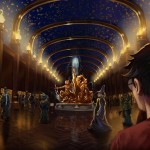
[image error]For the First Time, Fans Can Enjoy All Seven Beloved Harry Potter Books in a New & Immersive Way.
Apple® announced that enhanced editions of all seven books in J.K. Rowling’s Harry Potter series are now available exclusively on the iBooks Store℠ for readers around the world to enjoy on their iPhone®, iPad®, iPod touch® and Mac®. Customers can download individual books featuring full original text, interactive animations and elaborate artwork bringing these beloved stories to life in a unique way. Harry Potter fans will also find annotations throughout their literary journey, written by the author herself.
“I’m thrilled to see the Harry Potter books so beautifully realised on iBooks for the digital world; the artwork and animations in these enhanced editions bring the stories alive in a delightful new way,” said J.K. Rowling.
“Harry Potter fans are going to love how their favorite stories come to life,” said Tim Cook, Apple’s CEO. “J.K. Rowling’s legendary series is perfect for enjoying on your iPad or iPhone and we’re thrilled to offer them exclusively on the iBooks Store.”
Until now, the Harry Potter digital books have only been available for readers to purchase through the Pottermore Shop. Starting today, iBooks® users can experience the books with all new exclusive custom covers for each title, and typography including the custom Harry Potter typefaces and new section headers and drop caps.
The iBooks Store is available in 52 countries and offers dozens of categories including cookbooks, history books, biographies, picture books and children’s books, with free books available in 155 countries.
Availability
Today, the Harry Potter Enhanced Editions are available in English for $9.99 (USD) each in 32 countries. Pre-orders also begin today for French, German and Spanish versions, and will be available on November 9 in 18 additional countries.
Harry Potter fans can explore other magical content including Harry Potter movies, soundtrack albums and apps on the custom Harry Potter page on iBooks at www.iTunes.com/HarryPotter.
About Pottermore
Pottermore is the digital entertainment, news and e-commerce company from J.K. Rowling, inspired by the Harry Potter books and the wider Wizarding World. Launched in 2012, it is also the global publisher of the Harry Potter eBooks and digital audio books. As the digital heart of J.K. Rowling’s Wizarding World, pottermore.com is dedicated to unlocking the power of imagination. It offers news, features, and articles as well as new and previously unreleased writing by J.K. Rowling.
Apple revolutionized personal technology with the introduction of the Macintosh in 1984. Today, Apple leads the world in innovation with iPhone, iPad, the Mac and Apple Watch. Apple’s three software platforms — iOS, OS X and watchOS — provide seamless experiences across all Apple devices and empower people with breakthrough services including the App Store, Apple Music, Apple Pay and iCloud. Apple’s 100,000 employees are dedicated to making the best products on earth, and to leaving the world better than we found it.
Additional links
Source: BlogsRelease
[image error]
Work from home
Click here for a funny story about working in a home office as pictured in stock photography.
I will say that the settings in these photos are much cleaner and brighter than my office. I tend to keep the lighting dim. The brightest light is my monitor. ToDo lists and reminder notes hang on every wall and stacks of paper with various works in progress cover every horizontal surface so the place looks a bit like the aftermath of a tornado.
I will admit to taking a power nap most days. I have screamed at the computer and I have also WOWed and congratulated myself on a job well done. The one photo that’s missing from this collection is the one that pictures me chair-dancing when a favorite tune comes on Pandora.
So, does that answer all your questions about working in a home office?
October 13, 2015
Time is not on my side
NOT! I’ve got way too much going on.
I’ll be staffing a booth during this virtual convention on Epic Wednesday, Nov. 4. This will be a dedicated Facebook page. I hope you’ll come visit, comment, participate in the contests and giveaways.
I’ll be on a panel with five other authors of various types of fantasy books including paranormal and dystopian romance. We’ll be chatting about The Hero’s Journey but since all the panel members are women we’ll likely focus more on The Heroine’s Journey. We’ll raise some provocative issues and possibly some hackles, too.
National Novel Writing Month
NaNoWriMo begins Nov. 1. I’ll be endeavoring to write 50,000 words in 30 days which will be about 200 pages of a planned detective story. This will be my 5th writing marathon. I’ve managed to meet the challenge every time, sometimes with only minutes to spare. Can I do it again?
The Redoubt
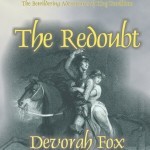 I began The Redoubt, Book 4 of The Bewildering Adventures of King Bewilliam, during NaNoWriMo 2014. A finished draft is in the hands of beta readers now. Though I didn’t expect to hear their comments until the end of October, one reader found it un-put-down-able and has already sent back her green-light review. So I’ll be working to finalize this book, slated for a February, 2016, launch.
I began The Redoubt, Book 4 of The Bewildering Adventures of King Bewilliam, during NaNoWriMo 2014. A finished draft is in the hands of beta readers now. Though I didn’t expect to hear their comments until the end of October, one reader found it un-put-down-able and has already sent back her green-light review. So I’ll be working to finalize this book, slated for a February, 2016, launch.
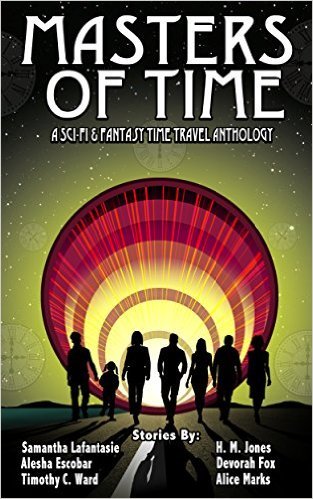 Masters of Time: A Science Fiction and Fantasy Time Travel Anthology
Masters of Time: A Science Fiction and Fantasy Time Travel Anthology
This anthology of time travel stories which includes my “Turning the Tide” continues to delight. Would that I truly was a Time Master. I could get myself rolling on several simultaneous timelines and meet all my challenges before I run out of you know what.
So do invite me to your holiday party. Just don’t be surprised if you find me snoozing under that pile of guests’ coats.
October 6, 2015
Come to FantasyCon
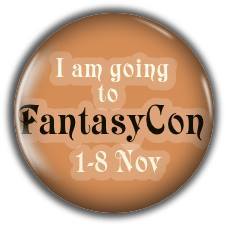 I barely got the calendar page turned to October but November is already busied out. Of course it’s National Novel Writing Month and I will be doing that but first I’m going to FantasyCon.
I barely got the calendar page turned to October but November is already busied out. Of course it’s National Novel Writing Month and I will be doing that but first I’m going to FantasyCon.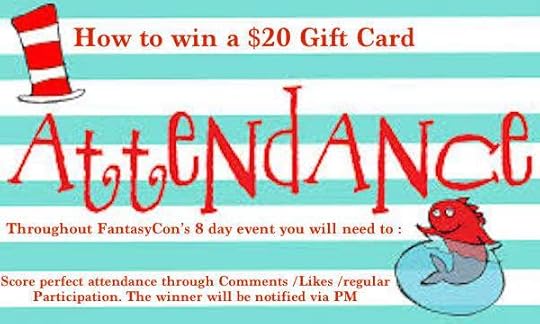 You should too if you love Sci-Fi, Fantasy, Fairytale, Steampunk or Paranormal fiction. You will have a chance to interact with your favorite authors, many of whom like myself will be staffing a booth. And you’re sure to find some new favorites. Your enthusiasm will be its own reward but if that isn’t enough, you’ll have a chance to win a gift card.
You should too if you love Sci-Fi, Fantasy, Fairytale, Steampunk or Paranormal fiction. You will have a chance to interact with your favorite authors, many of whom like myself will be staffing a booth. And you’re sure to find some new favorites. Your enthusiasm will be its own reward but if that isn’t enough, you’ll have a chance to win a gift card.
October 5, 2015
Found on amazon: “Missing”
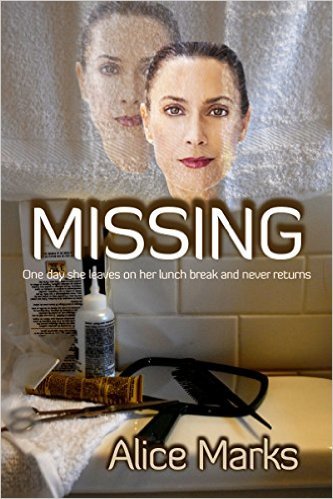 Break out the bubbly! Missing just became available on amazon.com.
Break out the bubbly! Missing just became available on amazon.com.I am positively giddy about this because the author, Alice Marks, is my mentor, dear friend, and a phenomenally talented writer.
What’s Missing about?
Rhonda Collins MD is a popular physician at a Corpus Christi family clinic. One day she leaves on her lunch break and never returns. Everyone in the city gets caught up in the mystery of what happened to a beautiful doctor.
I was honored to be asked to do a beta read on this so I know what happened to Rhonda, but I ain’t tellin’. You’ll have to buy the book and find out for yourself. You’ll enjoy trying to figure it out. I especially liked the two city detectives, veteran Sgt. Stan Belkin and newbie, Maria Gonzales.
Alice has had short works published in various Chicken Soup for the Soul collections and most recently in Masters of Time. Those like me who have enjoyed her short stories and poems will be delighted to have a longer work to read.





